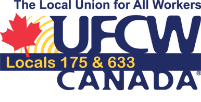Meaningful reform of Primary Care funding needed
October 10, 2025
On September 29, 2025, President Kelly Tosato sent a letter to the Minister of Health, The Honourable Sylvia Jones, expressing the Local Union’s concerns about the need for meaningful reform of Primary Care funding in the province. You’ll find the text of the letter below. As of October 10, 2025, the Minister has not responded.
The Honourable Sylvia Jones
Minister of Health, Deputy Premier, MPP Dufferin-Caledon
Dear Minister:
Local 175 of the United Food & Commercial Workers (UFCW) represents more than 7,000 healthcare workers in Ontario, and more than 70,000 workers across all sectors of the economy province-wide.
Today, I am writing to you on behalf of our 70,000 members to bring your attention to ongoing serious issues about the funding model for Primary Care and the impact those issues have on the staff of Community Care Centres (CHCs) who keep those organizations running and provide outstanding care for their clients.
Our Local Union represents workers at a number of Community Care Centres(CHCs) who provide Primary Care in the province, and those workers have raised numerous concerns about the viability of their work and the care they provide given the current funding shortfall across the sector.
Wages Falling Behind
One of the most pressing issues facing workers – and employers – in this sector is inadequate wages.
In recent years, inflation has caused many workers’ wages to lag, especially across the Community Care sector. Since 2020, the average annual rate of inflation was 3.76%. In effect, this means that in a sector where primary care workers do not receive cost-of-living adjustments and often have rate increases tied to funding that may – or may not – become available, these workers are taking a pay cut year after year.
The Alliance for Healthier Communities estimates that, among its membership, increases have totalled only 6% over the past 27 years.[1]
Workers deserve more and employers don’t have the funding to provide it.
Recruitment and Retention Risk
Inadequate wages due to underfunding mixed with high expectations of care and commitment have led to difficulty in recruiting and retaining skilled employees in the sector.
In a 2023 report from Eckler titled “Ontario Community Health Compensation Market Salary Review,” the top-ranked challenge (93.8%) faced in terms of talent management was Compensation.[2]
Hospital-sector Registered Nurses received an arbitration decision in 2023 awarding an increase of 11% over two years. When added to two earlier decisions that stemmed from the overturn of Bill 124, those nurses saw an annual increase of 16% on average between March 2023 and April 2024.[3]
Another decision saw RNs and Healthcare professionals in nursing homes awarded a salary increase of 11.5% over two years.[4]
Those achievements are impressive, yet workers in the Primary Care sector continue to be ignored. Overall, the average increase in 2023 for these workers was 1.5%, with many receiving no increases at all.
This widening gap creates a two-tiered system for health professionals, where those in Primary Health Care are systemically undervalued despite carrying out equally essential work.
Unionization: The Struggle to Bargain
While Union membership helps build improvements and protections for the workers through collective bargaining, employers in the sector often have nothing to bring to the table.
To consider any proposals brought forth by the Union – including asking for living wages for the employees – these employers often seem to be left deciding between whether to cut programs for the most vulnerable populations, lose funding, or strip other benefits away from the very staff providing these essential services.
In one recent round of bargaining at our Local Union, an employer claimed that in order to meet a wage increase of only 0.25 – 0.5% over three years, it would need to eliminate short and long-term disability benefits for those workers.
This puts staff in an impossible position: having to advocate for their own basic needs that they more than deserve at the risk of cutting services to their clients and losing other protections.
These workers care a great deal about their communities and clients but the current system seems to ensure that no one wins.
Primary Care Workers Become the Vulnerable
With lower wages, minimal to no increases, no cost-of-living adjustments, a chronically underfunded system, and employers having to cut benefits and other compensation in order to fund the most miniscule of increases, these workers are at high risk to fall into the very vulnerabilities they work so hard to help their clients manage.
As employers cut health benefits, long and short-term disability coverage, and more, a worker could easily find themselves in a financially precarious situation.
It is unconscionable that healthcare workers dedicated to supporting marginalized communities are themselves being placed at risk of becoming marginalized.
The Communities Served by CHC staff
The Primary Care staff at CHCs serve diverse and densely populated communities that face the greatest barriers to care and poorest outcomes, who are often affected by chronic illnesses and the social determinants of health.
These populations are, on average, 68% more complex when compared to the average Ontarian.[5]
Primary Care workers are a vital part of our healthcare system. The services they provide help alleviate strain on other parts of the system, such as helping people avoid hospitalization and emergency room visits, and hep save millions of dollars every year.[6]
The personalized, patient-centred care provided to these populations through Primary Care workers strengthens those communities, reduces inequities, and actually eases strain on other parts of our healthcare system.
The System Needs to Change
Primary Care is the foundation of Ontario’s health system. Without sustainable funding that protects the workers who deliver it, Primary Care cannot survive. The inequities faced by CHC staff are not just unfair, they are unsustainable.
Our Local Union supports and echoes the call put forth by many healthcare advocates: we need meaningful reform and a substantial increase to funding to ensure this vital part of our healthcare system can thrive and continue to provide life-saving primary healthcare services to Ontario residents.
I urge you to advocate for meaningful reform of Primary Care funding practices so that those on the front lines have real support, earn good wages, and are no longer left behind.
Sincerely,
Kelly Tosato
President, UFCW Local 175
[1] Alliance for Healthier Communities. (n.d.). Alliance for healthier communities pre-budget recommendations Ontario budget 2025. https://www.allianceon.org/Alliance-Healthier-Communities-Pre-Budget-Recommendations-Ontario-Budget-2025
[2] Ontario Community Health Compensation Market salary … Addictions and Mental Health Ontario. (2023, November). https://amho.ca/wp-content/uploads/2023/12/Ontario-Community-Health-Compensation-Study.pdf
[3] Ontario Nurses’ Association. (2024, November 26). Ontario Hospital Nurses, health-care professionals receive major wage increases in decision that cites the need to retain staff. Ontario Nurses’ Association. https://ona.org/news/20230720-hospital-central-decision/
[4] Ontario Nurses’ Association. (2024b, November 26). Ontario nursing homes ordered to pay nurses and health-care professionals 11.5-per-cent salary increases over two. Ontario Nurses’ Association. https://ona.org/news/20240521-nursing-homes-salary-increase/
[5] Alliance for Healthier Communities. (n.d.). Alliance for healthier communities pre-budget recommendations Ontario budget 2025. https://www.allianceon.org/Alliance-Healthier-Communities-Pre-Budget-Recommendations-Ontario-Budget-2025
[6] ibid

